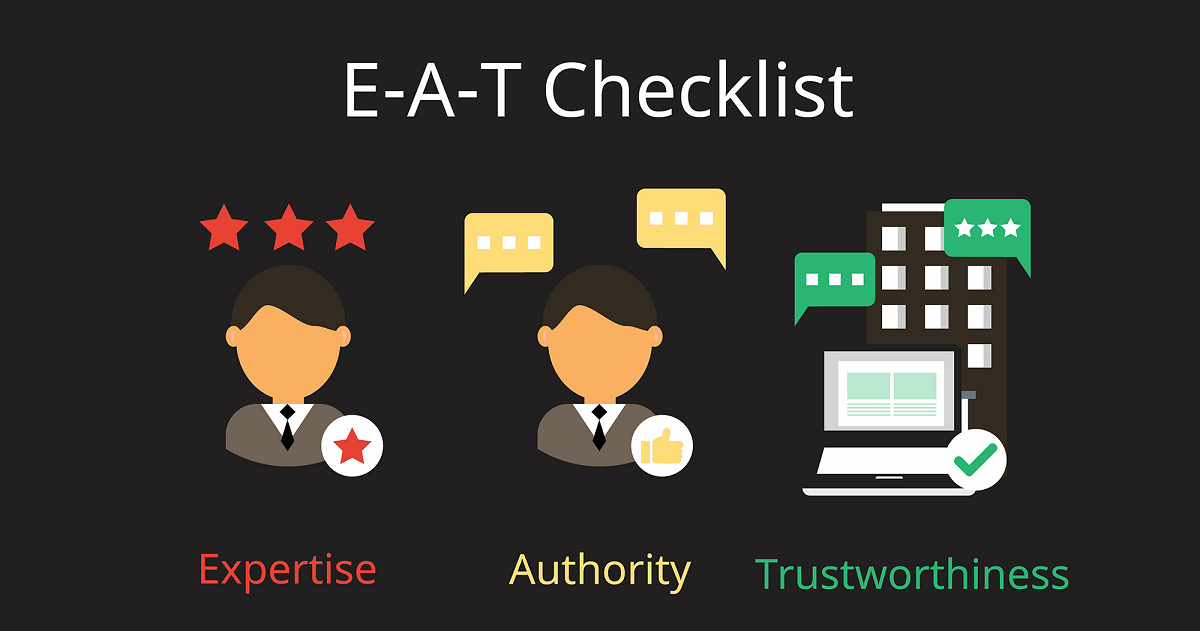BLOG
Mastering SEO Optimization: Strategies For Maximum Visibility

In today's digital landscape, where every click counts and competition is fierce, mastering the art of SEO optimization is no longer just an option—it's a necessity. Whether you're a small business looking to expand your online presence or a digital marketer aiming to boost your client's visibility, understanding and implementing effective SEO strategies can make all the difference.
In this comprehensive guide, we'll delve into the world of SEO optimization, uncovering powerful strategies that can propel your website to the top of search engine results pages (SERPs). From keyword research to on-page and off-page optimization and technical SEO to content creation, we'll equip you with the knowledge and tools you need to navigate the complex realm of search engine algorithms and emerge victorious.
Understanding SEO Optimization
Understanding SEO optimization is crucial for anyone looking to improve their website's visibility in search engine results. SEO, or search engine optimization, involves various strategies and techniques aimed at enhancing a website's relevance and authority in the eyes of search engines like Google. By optimizing your website, you can increase its chances of ranking higher for relevant keywords, attracting more organic traffic, and ultimately improving your online presence.
This includes optimizing your content with relevant keywords, improving your website's technical aspects for better performance and user experience, and building quality backlinks from reputable sources. Overall, SEO optimization is an ongoing process that requires a deep understanding of search engine algorithms and a strategic approach to ensure maximum visibility and success online.
Keyword Research
Keyword research is a foundational step in SEO optimization, crucial for understanding the language and intent of your target audience. By identifying the terms and phrases they use when searching for products, services, or information related to your business, you can tailor your content to match their queries. Effective keyword research involves analyzing search volume, competition, and relevance to your niche or industry.
Tools like Google Keyword Planner, SEMrush, and Ahrefs can help you discover valuable keywords and prioritize them based on their potential impact on your website's visibility. Through comprehensive keyword research, you can uncover opportunities to optimize your content and website structure to better align with what your audience is searching for, ultimately improving your chances of ranking higher in search engine results pages (SERPs).
In today's digital landscape, where every click counts and competition is fierce, mastering the art of SEO optimization is no longer just an option—it's a necessity. Whether you're a small business looking to expand your online presence or a digital marketer aiming to boost your client's visibility, understanding and implementing effective SEO strategies can make all the difference.
In this comprehensive guide, we'll delve into the world of SEO optimization, uncovering powerful strategies that can propel your website to the top of search engine results pages (SERPs). From keyword research to on-page and off-page optimization and technical SEO to content creation, we'll equip you with the knowledge and tools you need to navigate the complex realm of search engine algorithms and emerge victorious.
Importance Of Keyword Research In SEO Optimization
Keyword research is crucial in SEO optimization as it forms the foundation of your strategy. It helps you understand the words and phrases your audience uses to search, allowing you to tailor your content and website to meet their needs. Effective keyword research identifies high-value keywords with good search volume and low competition, guides content creation, and improves your website's visibility in search results. Ultimately, it's critical to maximizing visibility and reaching your target audience.
Strategies For Conducting Effective Keyword Research
- Understand Your Audience: Understand your target audience's needs, interests, and search behavior. Identify the topics and keywords they will likely use when searching for your products or services.
- Brainstorm Seed Keywords: Begin with a list of seed keywords related to your business or niche. These are general terms that are relevant to your industry.
- Use Keyword Research Tools: Utilize keyword research tools like Google Keyword Planner, SEMrush, Ahrefs, or Ubersuggest to expand your list of keywords. These tools provide insights into search volume, competition, and related keywords.
- Consider Long-Tail Keywords: Long-tail keywords are longer and more specific phrases that are less competitive but often have higher conversion rates. Include these in your research to target niche audiences.
- Analyze Competitor Keywords: Look at the keywords your competitors are ranking for. This can give you insights into their SEO strategy and help you identify valuable keywords to target.
- Focus on Search Intent: Consider the intent behind the keywords. Are users looking for information, products, services, or local businesses? Tailor your keyword selection to match the search intent of your target audience.
- Evaluate Keyword Difficulty: Assess the competition for each keyword. Choose a mix of high- and low-competition keywords to balance your SEO strategy.
- Refine Your List: Narrow down your list of keywords based on relevance, search volume, competition, and your website's ability to rank for them. Focus on keywords that align with your content strategy and business goals.
- Monitor and Update: Keyword research is an ongoing process. Regularly monitor keyword performance and update your strategy based on changes in search trends, algorithm updates, and your business priorities.
Following these strategies, you can conduct comprehensive keyword research to optimize your website for relevant, high-performing keywords.
Tools And Resources For Keyword Research
- Google Keyword Planner: This free tool provided by Google Ads helps you discover new keywords and get search volume data.
- Semrush: A comprehensive SEO tool that offers keyword research, competitive analysis, and more.
- Ahrefs: Another powerful SEO tool that provides keyword research, backlink analysis, and site auditing features.
- Moz Keyword Explorer: Offers keyword suggestions, search volume data, and keyword difficulty scores.
- Ubersuggest: A free keyword research tool that provides keyword ideas, search volume data, and keyword difficulty scores.
- KeywordTool.io: Offers keyword suggestions for Google, YouTube, Bing, Amazon, and more.
- AnswerThePublic: A tool that helps you discover the questions people ask about your keywords.
- Google Trends: Provides insights into trending topics and keyword popularity over time.
- SpyFu: Offers competitor keyword analysis and keyword research tools.
- Keyword Sheeter: Generates a massive list of keyword ideas based on a seed keyword.
These tools can help you discover new keywords, analyze their search volume and competition, and refine your keyword strategy for better SEO optimization.
On-Page SEO Optimization
On-page SEO optimization is essential for enhancing a website's visibility in search results. It involves optimizing elements like title tags, meta descriptions, headings, and content with relevant keywords. This strategic placement improves the page's relevance to user queries, increasing its chances of ranking higher. Other key aspects include optimizing images with descriptive alt tags, creating SEO-friendly URLs, and implementing internal linking strategies.
Tips for optimizing title tags, meta descriptions, headings, and content
- Title Tags:
- Keep them under 60 characters and descriptive.
- Include your target keyword early.
- Make them compelling for clicks.
- Meta Descriptions:
- Write concise (under 160 characters) and informative descriptions.
- Include your target keyword naturally.
- Use a call-to-action to encourage clicks.
- Headings:
- Use one H1 tag per page for the main title.
- Organize content with H2, H3, etc., tags.
- Include keywords naturally for readability.
- Content:
- Create high-quality, valuable content.
- Use keywords naturally, avoiding over-optimization.
- Organize content with clear headings and multimedia elements.
Off-Page SEO Optimization
Off-page SEO focuses on improving your website's authority and relevance through activities outside your site. It includes strategies like link building, social media engagement, and guest blogging to enhance visibility and credibility. These efforts aim to boost your site's rankings in search engine results pages by demonstrating its quality and relevance to users and search engines.
Tips for earning high-quality backlinks
- Create Great Content: Produce valuable, original content that others want to share.
- Guest Blogging: Write for reputable sites in your industry for exposure and backlinks.
- Broken Link Building: Offer your content as a replacement for broken links on quality sites.
- Resource Link Building: Create informative resources and outreach to relevant sites.
- Influencer Outreach: Collaborate with influencers for promotion and backlink opportunities.
- Social Media Promotion: Share your content on social media for visibility and links.
- Harvest Unlinked Mentions: Find mentions of your brand without links and request them.
- Participate in Online Communities: Engage in relevant discussions to share your expertise.
- Create Linkable Assets: Develop unique, valuable content that's hard to replicate.
- Build Relationships: Network with others in your industry for potential backlink opportunities.
Technical SEO Optimization
Technical SEO optimization improves your website's technical aspects to enhance its visibility and performance in search results. It involves optimizing website speed, mobile-friendliness, and site architecture to ensure that search engines can efficiently crawl and index your site. Technical SEO also includes implementing best practices for URL structure, using canonical tags, and creating XML sitemaps. Focusing on these technical details can improve your site's overall SEO health and make it more user-friendly, leading to higher rankings in search results.
Tips for optimizing website speed, mobile-friendliness, and site architecture
- Website Speed:
- Use fast web hosting and enable caching.
- Compress images and files.
- Minimize HTTP requests and use a CDN.
- Mobile-Friendliness:
- Use responsive design.
- Test with Google's Mobile-Friendly Test.
- Optimize images and videos for mobile.
- Site Architecture:
- Create a clear and logical structure.
- Use descriptive URLs and organize content.
- Implement breadcrumbs and schema markup.
Content Creation and Optimization
Content creation and optimization are critical for SEO, which improves a website's visibility and ranking on search engine results pages. High-quality, relevant content that addresses the needs of your audience and incorporates relevant keywords is essential. Optimizing content involves structuring it effectively with headings, subheadings, and formatting and ensuring it is mobile-friendly. This focus helps businesses enhance their online presence, establish authority, and drive more qualified traffic.
Measuring SEO Success
Measuring SEO success is crucial for evaluating the effectiveness of your optimization efforts and determining the impact on your website's visibility and traffic. Critical metrics for measuring SEO success include organic traffic, keyword rankings, backlink profiles, and engagement metrics such as click-through rates and time on the page. Tools like Google Analytics, Google Search Console, and third-party SEO platforms provide valuable data to track these metrics over time. Regular monitoring and analysis of these metrics allow you to identify trends, optimize your strategies, and demonstrate the tangible results of your SEO efforts to stakeholders.
Tools for tracking and analyzing SEO efforts.
- Google Analytics: Provides detailed insights into website traffic, user behavior, and conversion metrics. It's essential for tracking organic search traffic, keywords, and user engagement.
- Google Search Console: Offers data on how your site appears in Google search results, including keyword performance, indexing issues, and click-through rates. It also provides valuable insights into site health and performance.
- SEMrush: A comprehensive SEO tool that offers features for keyword research, competitive analysis, backlink analysis, and site auditing. It provides insights into organic search performance and helps track keyword rankings.
- Moz Pro: Offers a suite of SEO tools, including keyword research, site auditing, rank tracking, and link analysis. It provides actionable insights to improve your site's SEO performance.
- Ahrefs: Known for its robust backlink analysis capabilities, Ahrefs also offers tools for keyword research, content analysis, and rank tracking. It provides valuable insights into your site's backlink profile and organic search performance.
- SE Ranking: Provides various SEO tools, including keyword rank tracking, website auditing, backlink monitoring, and competitor analysis. It offers insights into keyword rankings, site visibility, and competitor strategies.
Conclusion
Mastering SEO optimization in the ever-changing digital landscape is crucial for enhancing visibility and success. This guide has covered various strategies—from keyword research to technical SEO—that can boost your website's rankings and organic traffic.
Staying updated with SEO trends and best practices is critical. Regularly monitoring your website's performance and adapting your strategies will help you stay ahead. SEO is an ongoing process requiring dedication and continuous improvement, but with these strategies, you can achieve lasting success in the competitive online world.











